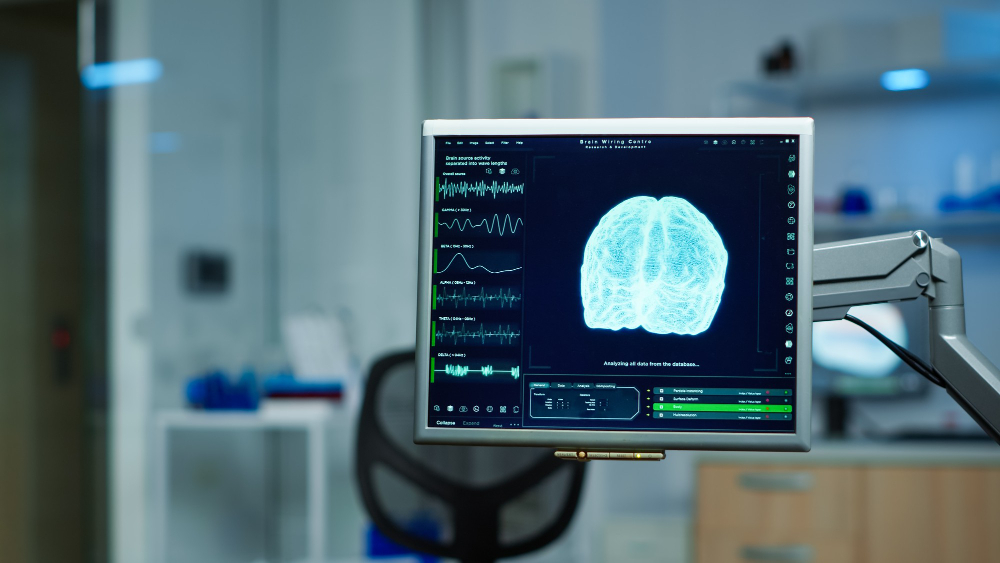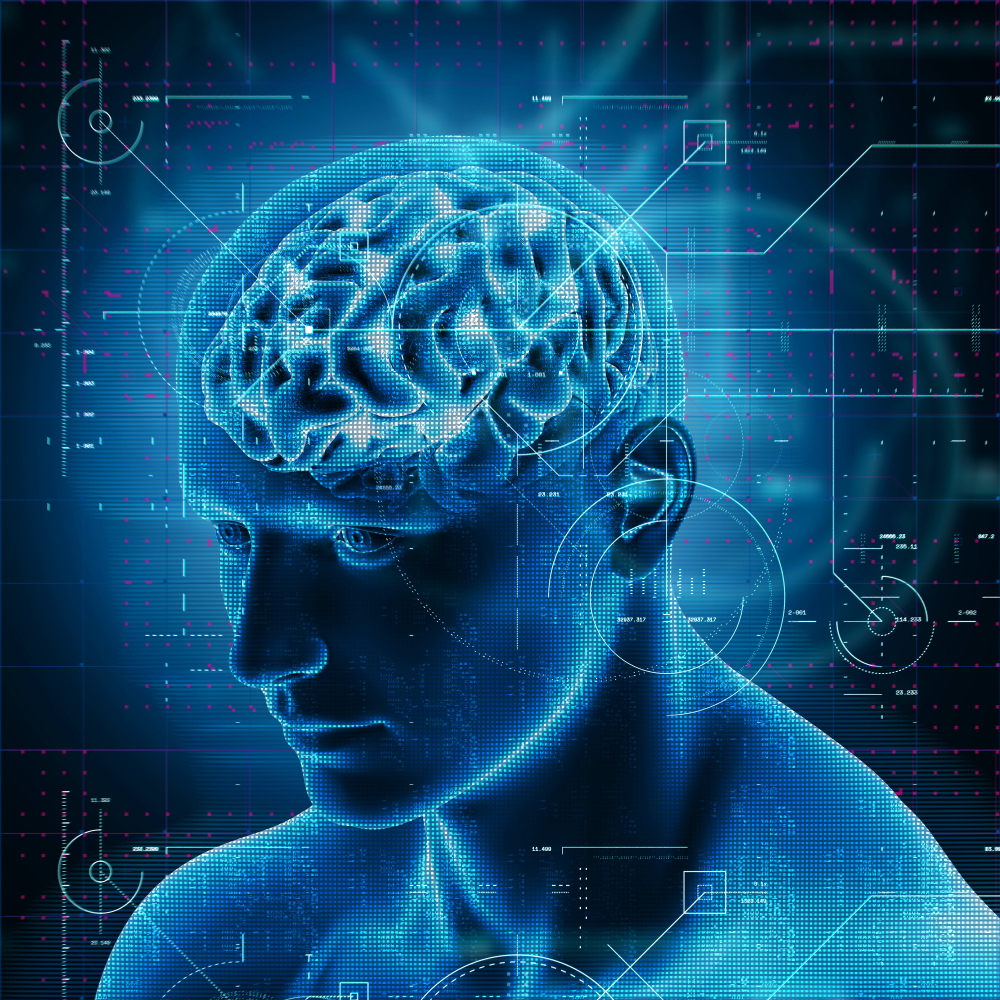After carefully reviewing the article Neurotechnology: Unlocking the Power of the Mind, I am inspired to discuss potential business ideas within this rapidly developing field. It is evident that neurotechnology has the potential to significantly improve people's lives and has the power to revolutionize the entire business landscape.
With the emergence of neurotechnology businesses, there is a wide range of innovative devices available that directly interface with our neural circuits, as well as advanced software capable of interpreting the intricate language of brain waves. I am excited to explore and share these business opportunities with you.
View of Points
- The Emergence of Neurotechnology
- The Rise of Neurotechnology Businesses
- The Future of Neurotechnology Businesses
- Conclusion
Contents,
The Emergence of Neurotechnology

This section introduces neurotechnology, explaining how it interacts with the human nervous system, particularly the brain. It discusses the evolution of neurotechnology from its initial use in medical science to its current mainstream applications in various sectors. The role of AI and Machine Learning in interpreting complex data from neurotechnology devices is also highlighted.
https://www.nature.com/articles/d41586-023-02405-y
Understanding Neurotechnology
Neurotechnology is a revolutionary field that combines neuroscience and technology to create devices that can interact with the human nervous system. These devices can monitor neural activity, stimulate parts of the nervous system, or even decode the brain's signals to control external devices. This has opened up a world of possibilities, from treating neurological disorders to enhancing human capabilities.
The Evolution of Neurotechnology
Neurotechnology has come a long way since its inception. Initially used in the medical field to treat conditions like Parkinson's disease and epilepsy, it has now found applications in various other sectors, including entertainment, education, and marketing. The evolution of neurotechnology is a testament to human ingenuity and the endless possibilities that it presents.
From Medical Science to Mainstream Use
Initially, neurotechnology was primarily used in the medical field to treat conditions like Parkinson's disease and epilepsy. However, it's now finding applications in various other sectors, including entertainment, education, and even marketing.
The Role of AI and Machine Learning in Neurotechnology
Artificial Intelligence (AI) and Machine Learning (ML) play a crucial role in neurotechnology. They help interpret the complex data generated by these devices and can even learn to predict certain brain patterns.
The Rise of Neurotechnology Businesses

This part of the article explores the growth of businesses in the neurotechnology sector. It talks about the boom in neurotechnology devices, such as Brain-Computer Interfaces and wearable neurotech devices. The challenges and opportunities in neurotechnology software development, including the development of brain-controlled applications, are also discussed.
The Boom in Neurotechnology Devices
The rise of neurotechnology has led to a boom in the development of innovative devices. Brain-Computer Interfaces (BCIs) are devices that enable direct communication between the brain and an external device. On the other hand, wearable neurotech devices, like EEG headbands, allow users to monitor their brain activity in real time. These advancements are changing the way we interact with technology and the world around us.
Brain-Computer Interfaces: A New Frontier
Brain-computer interfaces (BCIs) are devices that enable direct communication between the brain and an external device. Companies like Neuralink are pioneering this technology.
Wearable Neurotech: Monitoring Brain Activity On-the-Go
Wearable neurotech devices, like EEG headbands, allow users to monitor their brain activity in real-time. These devices have meditation, sleep tracking, and even mental health applications.
The Growing Field of Neurotechnology Software Development
With the rise of neurotechnology devices, there is a growing need for software that can interpret the complex data these devices generate. This has led to a surge in the field of neurotechnology software development.
Companies are now developing software that can accurately interpret brain data and even predict certain brain patterns, paving the way for a future where we can control devices with our thoughts.
Interpreting Brain Data: The Software Challenge
Developing software that can accurately interpret brain data is a significant challenge in neurotechnology. However, it's also an area ripe with opportunities for innovative startups.
Brain-Controlled Applications: The Future of Interaction
Imagine controlling your smartphone or computer with your thoughts. Brain-controlled applications could revolutionize how we interact with technology.
The Future of Neurotechnology Businesses
It identifies the need for neurotechnology consulting to guide businesses through the complex landscape of this field. It also discusses the importance of data security in neurotechnology and the role of cybersecurity.
The section concludes by emphasizing the need for neurotechnology training and education for both the workforce and consumers.
The Need for Neurotechnology Consulting
As the field of neurotechnology continues to grow, there is a growing need for consultants who can guide businesses and individuals through this complex landscape. These consultants can provide valuable insights into the latest developments in the field, help businesses choose the right neurotechnology devices, and even assist in interpreting the data these devices generate.
Guiding Businesses Through the Neurotech Landscape
As the neurotech field grows, there's a need for consultants who can guide businesses through this complex landscape. This could be a promising business opportunity for those with expertise in neurotechnology.
Helping Consumers Make Informed Neurotech Choices
With a plethora of neurotech devices on the market, consumers need help making informed choices. A business that provides unbiased reviews and comparisons of neurotech devices could fill this gap.
Data Security in Neurotechnology
With neurotech devices collecting sensitive brain data, there is a pressing need for robust data security measures. This has led to the emergence of businesses that specialize in securing this data and ensuring user privacy. As the field continues to grow, data security in neurotechnology will become increasingly important.
Protecting Sensitive Brain Data
Neurotech devices collect sensitive brain data, creating a need for robust data security measures. Businesses that can provide solutions to this problem will be in high demand.
The Role of Cybersecurity in Neurotech
Cybersecurity is crucial in neurotechnology to protect against data breaches and ensure user privacy. This presents opportunities for cybersecurity firms to specialize in neurotech.
Neurotechnology Training and Education
As neurotechnology becomes more mainstream, there is a need for training programs to prepare the workforce for this new field. This could be a lucrative opportunity for educational institutions and online learning platforms. Additionally, consumers need to be educated on how to use neurotech devices safely and effectively, presenting another business opportunity in the field.
Preparing the Workforce for a Neurotech Future
As neurotech becomes more mainstream, there's a need for training programs to prepare the workforce for this new field. This could be a lucrative opportunity for educational institutions and online learning platforms.
Educating Consumers on Neurotech Use and Safety
Consumers need to be educated on how to use neurotech devices safely and effectively. Businesses that can provide this education, perhaps through online courses or workshops, could thrive in the neurotech future.
Conclusion
The blog post concludes by emphasizing the vast potential and opportunities in the field of neurotechnology. It highlights the need for businesses to navigate this complex landscape with knowledge and foresight. The post also underscores the importance of data security and the role of cybersecurity in protecting sensitive brain data.
It ends by stressing the need for training and education in neurotechnology, both for the workforce and consumers, to prepare for a future where neurotechnology becomes mainstream. The conclusion serves as a call to action for readers to explore and engage with the opportunities in the neurotechnology field.
